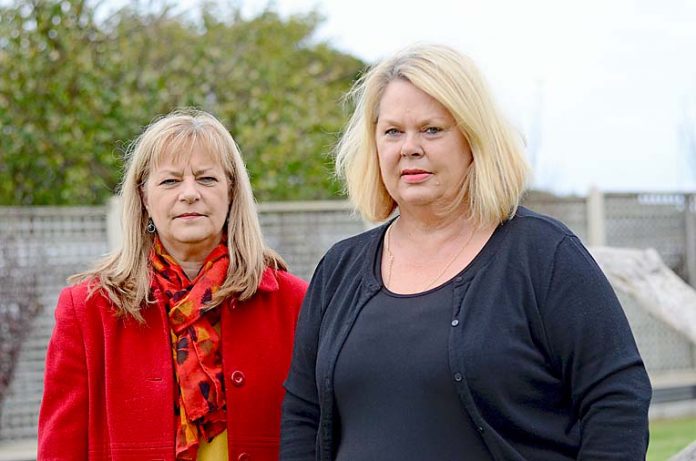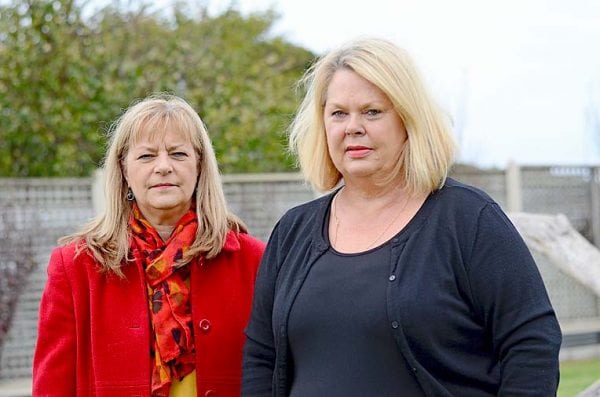

A SIGNIFICANT number of women in domestic violence situations throughout the region are potentially missing out on vital assistance due to the lack of resources available, according to a local service provider.
With 62pc of the region’s population living outside of Mount Gambier, Limestone Coast Domestic Violence Service (LCDVS) manager Susie Smith said there was a significant under-representation of women from outlying areas being identified.
“In country South Australian services, we are really backed into a corner – we are operating in regional centres but we are not seeing the full risk profile of the women who are out in less populated areas because we are not there in person working on the ground,” she said.
“However, we know these women are at a greater risk of harm and even death because of their isolation.”
Seeing a slow but steady increase in the amount of clients at the service, Ms Smith said they are averaging around 300 people being assisted each year.
While this is good news with more people reporting incidents and an increase in those reaching out for help, with limited resources available, case workers are stretched to the maximum.
“It’s like moving pieces around a chess board – we can only work with women for the time it takes to mitigate the risk, which makes her vulnerable to returning to the violence and returning to us in crisis down the track,” Ms Smith said.
“Women who leave domestic violence relationships need long-term support to go on and be successful.
“However, because there is that steady increase our work is narrowed with more of a crisis model in place.
“At the moment those women in more regional areas only ever really get a phone service because we are forced into this model, it is much better to have that face to face contact.”
Attending a round-table meeting recently following the formation of the new State Government, Ms Smith said regional clients would benefit enormously if further resources were available.
“One of the points made at the meeting was that service delivery in rural, regional and remote areas needs to be enhanced – hopefully this is something the government will look into,” she said.
“If we could have even one person to visit different parts of the region, trust could be built with more clients and we could help them more effectively.
“In Mount Gambier and more populated areas, women have neighbours and other people to look out for them, but when they are more isolated there is little support.”
Although intervention orders can be put in place, Limestone Coast Family Violence Action Group chair Sonya Mezinec said it does not mean women are well protected.
“Depending on the offender, some people just do not care for the intervention order, jail is no deterrent for them,” she said.
“We as services need to talk to women more carefully about their safety plan and what they can do before help gets there.”
While resources have not been increased for the local domestic violence service providers, there has been an increase in police officers assigned to cases in the region.
The team of two based at the Mount Gambier Police Station has recently grown to three to provide increased support throughout the Limestone Coast.
“This is a great step for us – there is a lot of work involved, it is not just about speaking to someone and taking the report and that is the end of it, our officers link up with domestic violence services locally and help victims through the process,” Limestone Coast Police officer in charge Superintendent Grant Moyle said.
“While I do not think the domestic violence issue is bigger than other areas, it is a real issue that we have to get on top of – we take the issue very seriously.
“There are more cases being reported, a lot more in particular from other people hearing an argument in a house and contacting police.”
Aiming to improve service delivery even further with the addition of the new team member, Supt Moyle said they will do their best to help the victims and prosecute offenders where possible.
“Resolving the domestic violence issue is like the ice problem, it is not just police going in and locking someone up, it is a bigger and more complicated issue,” he said.
“If police assistance is needed in a situation call 131 444 or 000 if it is an emergency.
“Do not wait because violence in the home is not acceptable and we need to deal with it and support our victims and reduce instances of it where we can.”
The 24-hour telephone service 1800 RESPECT can be contacted by anyone experiencing or witnessing sexual, domestic or family violence in Australia.
The service provides counselling with opportunities to refer to local services for further support.







